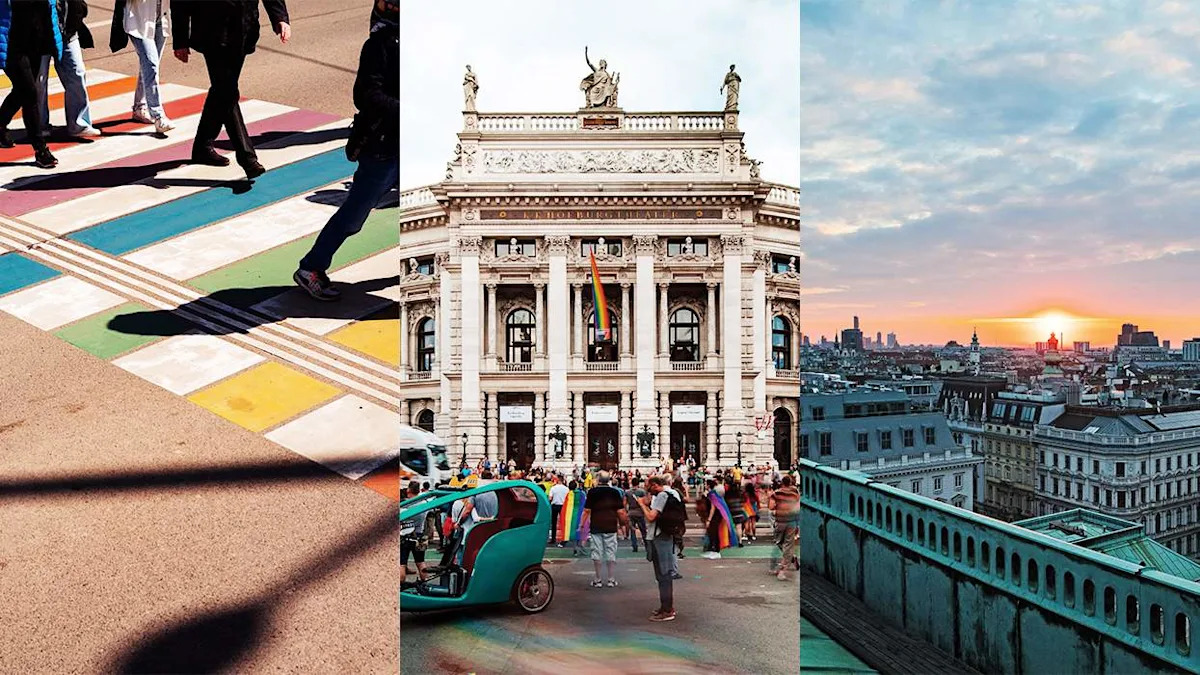With a population of just over 2 million, Vienna is a city of precision and poetry. It’s known as the classical music capital of the world, and for good reason: Mozart, Beethoven, and Strauss all lived and worked here, and their influence lingers in the city’s ornate opera houses, concert halls, and grand boulevards. But the rhythm of Austria’s capital city is felt beyond its music. From the candlelit charm of its UNESCO-listed coffeehouses to the lush vineyards nestled within its city limits, Vienna moves with quiet elegance and enthusiasm.
And while it shines year-round, Vienna is especially magical in winter. The city transforms into a wonderland of Christmas markets, festive lights, and warm glühwein poured curbside. Ice-skating rinks pop up all over town — most famously in front of City Hall — and the scent of roasted chestnuts fills the air.
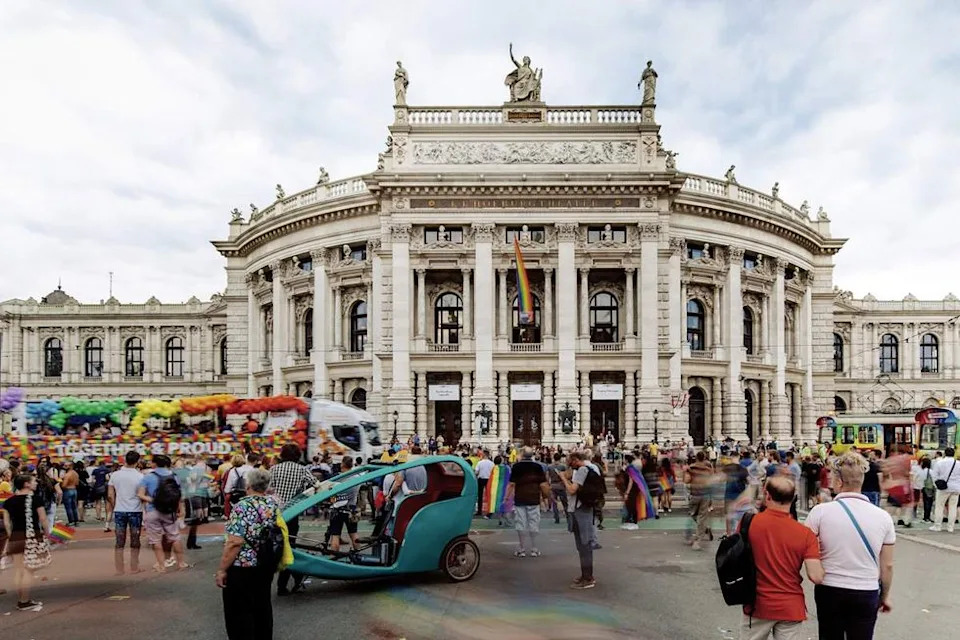
\u200bThe 2025 Rainbow Parade in front of the Burgtheater at Vienna Pride
Courtesy WienTourismus/Paul Bauer
Vienna’s Rainbow Parade outside the Burgtheater
For queer travelers, Vienna is both welcoming and progressive, consistently ranking among Europe’s most LGBTQ-friendly destinations. (Same-sex sexual activity was decriminalized in 1971, with marriage equality arriving in 2019.) So whether you’re drawn in by the art, the wine, or the waltz, Vienna offers plenty to uncover. Use this LGBTQ+ travel guide to help you navigate where to stay, eat, and explore along the way.
Getting there
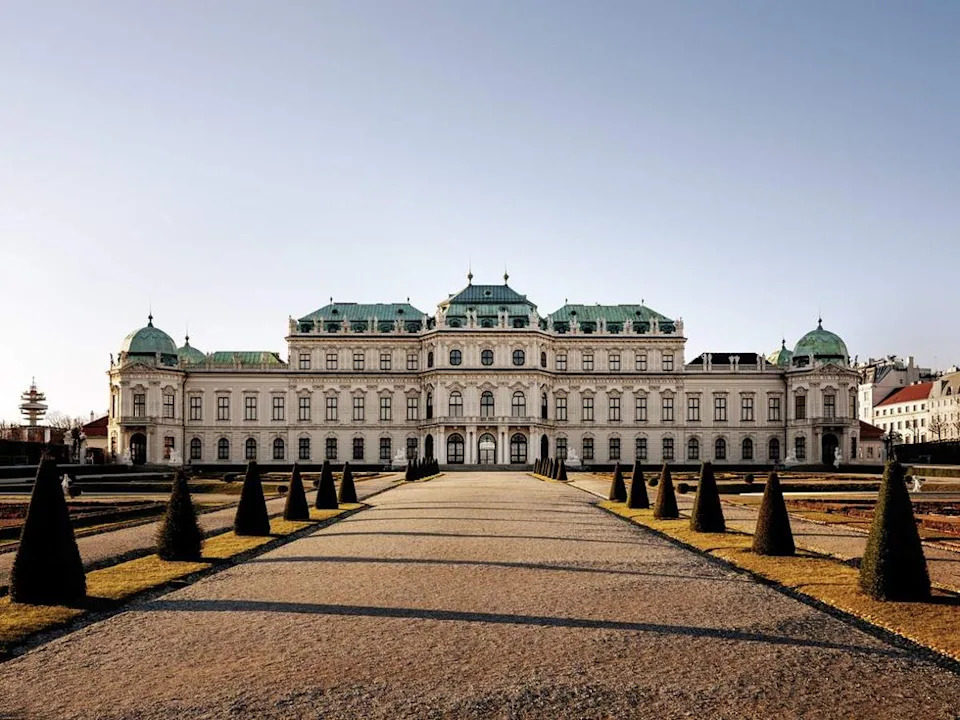
The Upper Belvedere art museum in Vienna
Courtesy WienTourismus/Paul Bauer
The Upper Belvedere, one of Vienna’s most iconic landmarks
Touching down at Vienna International Airport (VIE) marks the start of a refreshingly seamless travel experience, with a 20-minute drive or a 30-minute train ride to the city center. The sleek airport sits about 11 miles southeast of Vienna’s historic Innere Stadt, making it easy to swap jet lag for schnitzel in no time. Direct flights from the U.S. are available via Austrian Airlines, United, Lufthansa, and Delta, connecting cities such as New York, Chicago, and Washington, D.C., to Austria’s capital.
Where to stay: Almanac Palais Vienna
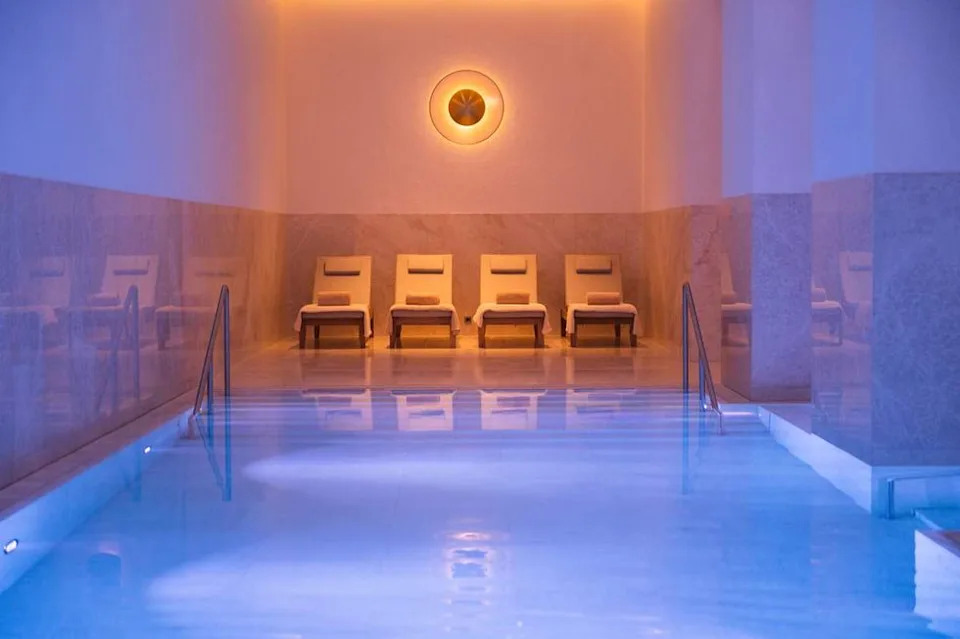
The swimming pool at the Almanac Palais Vienna hotel
Courtesy Almanac Palais Vienna
Take some time to relax in the Almanac’s blissful indoor swimming pool.
Housed in two grand 19th-century palais overlooking the oasis of green that is Stadtpark, the Almanac Palais Vienna is a boutique escape that feels equal parts regal and relaxed. You’re right on the Ringstrasse — walking distance from the Vienna State Opera, MAK museum, and the Naschmarkt — but just far enough from the hustle and bustle to relax.
Inside, the design strikes a rich balance of plush textures, glints of gold, and, in some rooms, mirrored ceilings that catch the light in just the right way. It nods to the building’s imperial past without tipping into heaviness or excess. My room felt serene, the kind of space that invites you to actually unpack and unwind. Subtle elevated touches, such as motion-sensing lights and automated blinds, aren’t just clever; they reflect the hotel’s innovative approach to promoting sustainability without compromising comfort.
Art lovers are in for a real treat: The Almanac has recently unveiled an in-house Austrian art collection in collaboration with Galerie bei der Albertina Zetter, featuring an original Klimt on view — the first ever displayed in a hotel. Via the hotel’s concierge, guests can also book exclusive after-hours gallery tours and enjoy complimentary access to the Upper and Lower Belvedere museums.
Downstairs, Donnersmarkt serves up a vibrant, plant-forward menu from breakfast to dinner, with hand-crafted cocktails and a colorful mural to match. The indoor spa pool, steam room, and sauna were delightful highlights that offered a welcome pause from sightseeing. And Elias, the hotel’s park-facing coffee bar, brings Vienna’s café culture into the present with specialty brews and vegan baked treats, making the Almanac a truly artful stay, in every sense.
Where to stay: Hilton Vienna Plaza
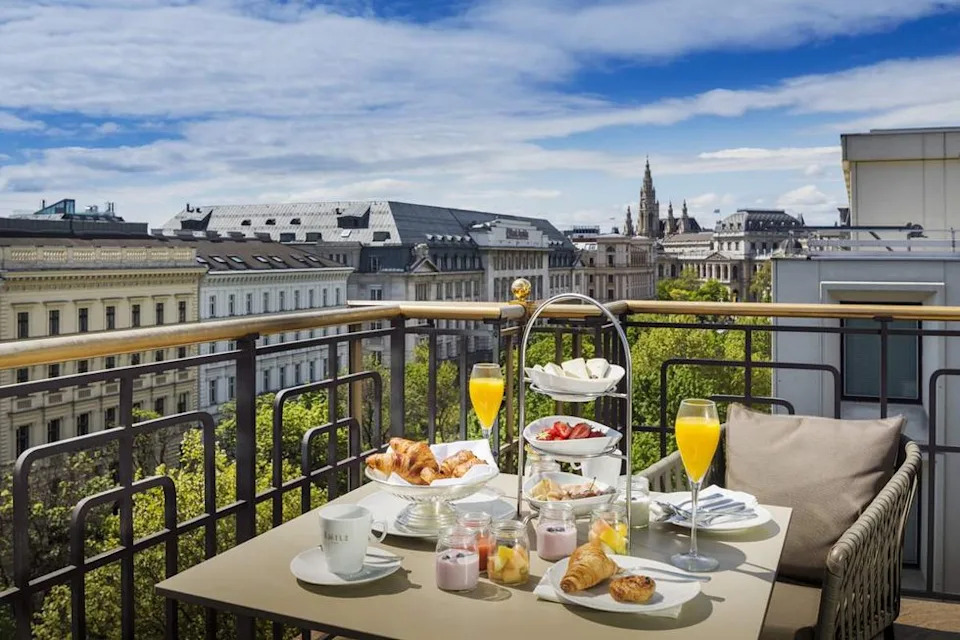
A breakfast spread on the terrace at Hilton Vienna Plaza
Courtesy Hilton Vienna Plaza
Breakfast with a view at Hilton Vienna Plaza
There’s something instantly uplifting about stepping into the Hilton Vienna Plaza. Maybe it’s the soft, signature scent that greets you at the door — not too strong, but just enough to signal you’re officially on vacation. Perhaps it’s the refreshed interiors, which underwent a thoughtful update in 2024 and now feel both sleek and nostalgic. Inspired by the golden era of the 1920s, the design nods to art deco glamour while retaining a modern sensibility. The property, located on the opposite end of Vienna’s storied Ringstrasse, is just a 10-minute walk from sights like St. Stephen’s Cathedral and the Hofburg palace. It’s an ideal home base, whether you’re museum-hopping, shopping, or simply wandering around.
With 254 rooms and suites — including an exclusive penthouse floor with panoramic balconies — the hotel offers classic comfort with a touch of grandeur. During my visit, I stayed in an executive king room, which came with access to the spacious second-floor lounge that serves complimentary continental breakfast, and drinks and snacks throughout the day. Downstairs, the all-day restaurant, ÉMILE, blends modern flair with vintage charm, serving a menu that’s international yet rooted in Viennese tradition. The breakfast spread alone deserves applause and will leave you well-fueled for the day ahead.
The Börse tram stop is located right outside the hotel, and the U-Bahn is nearby; however, Vienna’s walkability means you’ll barely need either. As a bonus, the property is just 20 minutes from the airport, door-to-door.
Where to eat and drink: Café Prückel
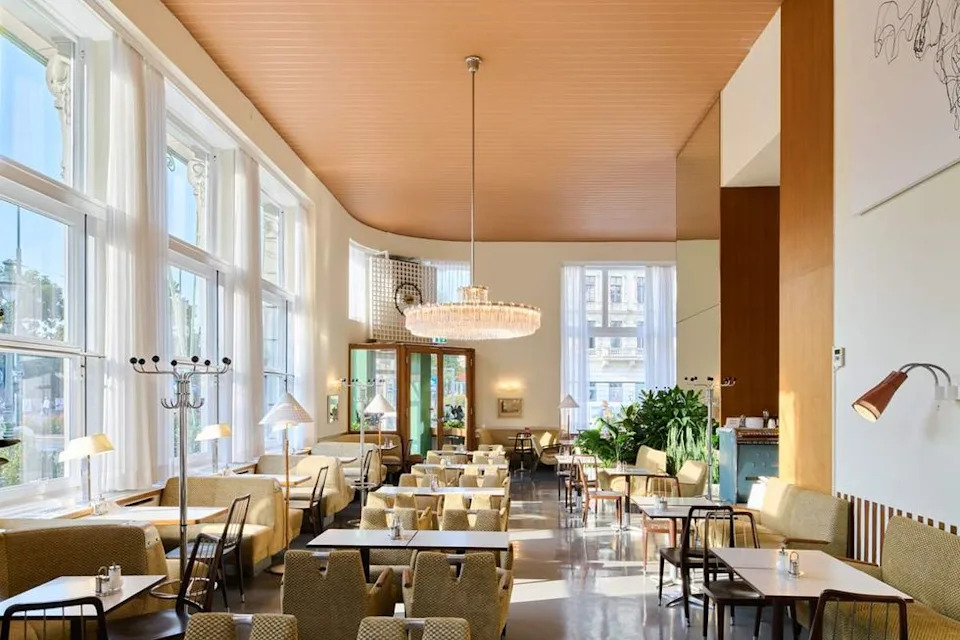
The dining room at Cafe Pruckel in Vienna
Courtesy Lukas Schaller
The menu at Café Prückel is authentic Viennese.
Step inside Café Prückel and you’ll feel as if time has slowed to the perfect pace for coffee, cake, and conversation. Although it first opened its doors in 1903, the café’s signature look dates back to a 1950s redesign, and that mid-century style has become an integral part of its charm. With sunlight spilling across marble tables and the frequent rustle of newspapers, it’s the kind of place that invites you to stay awhile.
Open daily from 8:30 a.m. to 10 p.m., the menu is classic: strong coffee, flaky pastries, and a proper Viennese breakfast, with vegetarian and vegan options available. Prückel remains a gathering place for locals, artists, and travelers alike. Service here is warm, the crowd is eclectic, and whether you’re stopping in for lunch or lingering over strudel, it’s a slice of everyday Austrian culture that feels effortlessly authentic. Just keep in mind that it’s worth booking ahead if you’re visiting during busier hours, such as lunch or dinner.
Where to eat and drink: Caffeine fix
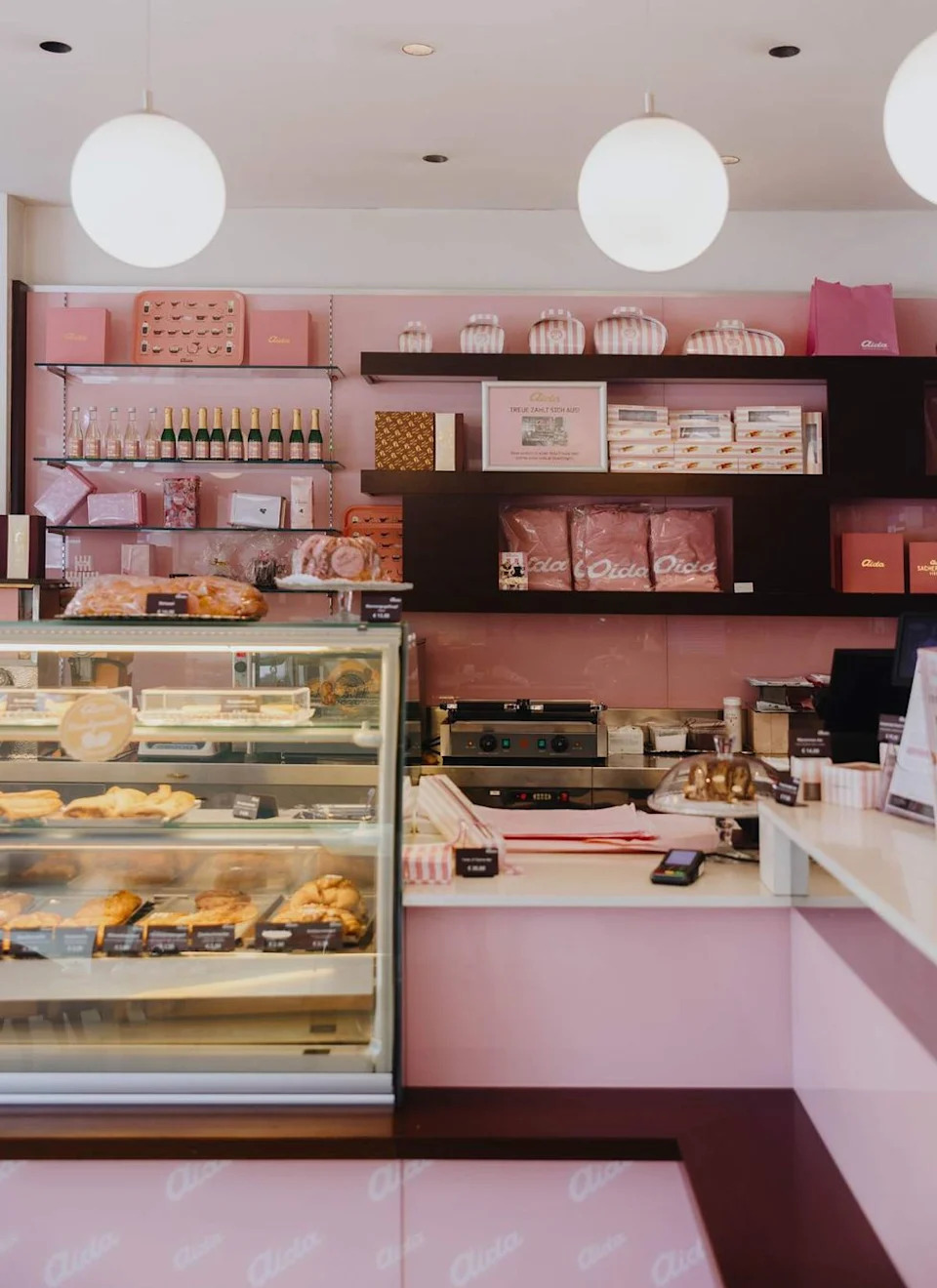
The inside of an Aida cafe in Vienna
Courtesy WienTourismus/Manuel Peric
Aida café charms with its signature pink decor and classic Viennese pastries.
Vienna does coffee like nowhere else, and it’s worth sampling cups from both the old guard and the new wave. For classic grandeur, start at Café Central. At this architectural gem, you can lose track of time over a melange (Vienna’s version of a cappuccino) and a slice of sachertorte (a famous Viennese chocolate cake). Just down the Ringstrasse boulevard, Café Landtmann is another storied spot; once frequented by Sigmund Freud and Paul McCartney, it has shaded terrace seating and all the charm you’d expect from a grand Viennese café.
Modern gems shine, too. Calienna, located in the 7th district, serves top-tier flat whites and matcha in a bright, plant-filled space that feels more like a creative studio than a coffee shop. And Aida café is a local chain known for its retro pink interiors and decadent sweet treats, making it an ideal spot for an afternoon pick-me-up while on the go.
Where to eat and drink: Vienna’s gay bars
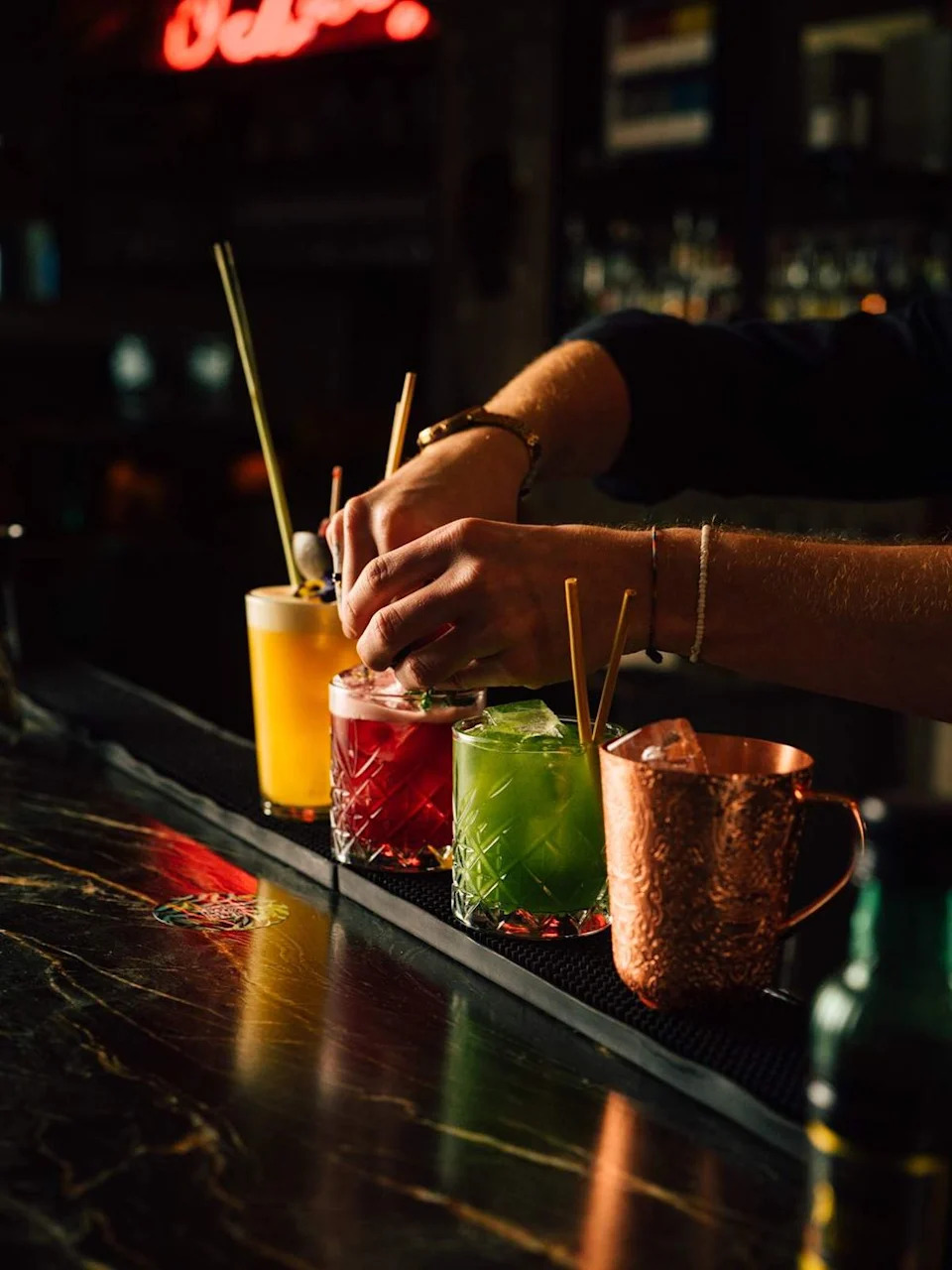
Four cocktails lined up at a bar in Vienna
Courtesy WienTourismus/Julius Hirtzberger
Cocktails flow across Vienna’s diverse queer bar scene.
Vienna’s LGBTQ+ nightlife is refreshingly diverse — equal parts refined, rowdy, and risqué. If you’re looking to dance, Why Not is the city’s oldest and best-known gay club. It spans three floors and is especially lively on weekends, with themed nights and a mix of locals and travelers keeping the party going well into the night. A short walk away, Felixx Bar offers a more polished vibe. With its stylish interiors and strong cocktail selection, it’s ideal for pre-dinner drinks or a relaxed evening with friends.
For something more intimate, Mango Bar is a no-frills, cozy spot with friendly staff and a loyal following — great for a quiet evening and easy conversation. If you’re feeling adventurous, Kaiserbründl men’s sauna is housed in a historic building and known for its ornate interiors and cruisy atmosphere. And while not exclusively queer, DonauTechno is one of Vienna’s edgiest underground bars, drawing a mixed, alternative crowd with its nightly techno and visual projections under neoclassical arches.
Where to eat and drink: Plant-powered posse
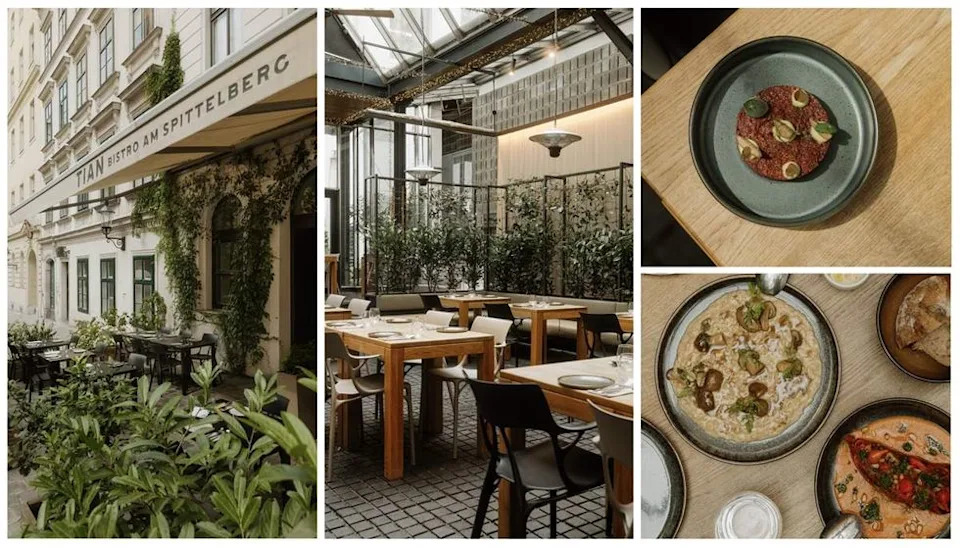
A collage of photographs taken at TIAN Bistro am Spittelberg in Vienna
Courtesy Hannes Kläger
Seasonal, plant-based dining meets understated elegance at TIAN Bistro am Spittelberg.
For vegan and veg-curious travelers, Vienna’s plant-based scene is quietly spectacular. Start at TIAN Bistro, where a beautifully composed sharing menu rotates seasonally and leans into bold, surprising flavors. If mushrooms aren’t usually your thing, they just might convert you here. The vibe is intimate without being stuffy — low music, great lighting, and food you’ll still be thinking about the next day. If you’re feeling extra indulgent, TIAN, their Michelin-starred sister restaurant located in the city center, Stephansplatz, delivers plant-based fine dining with flair.
Restaurant JOLA also offers an upscale experience with a creative fixed menu that impresses locals and visitors alike. For something more casual, Swing Kitchen prioritizes sustainability while serving delicious burgers, fries, and refillable sodas. And at Ramasuri, just steps from the Prater, you’ll find inventive vegan options from French toast to gnocchi in a relaxed space. Afterward, be sure to stroll over to Vienna’s iconic giant ferris wheel; whether you ride during the day or at night, the panoramic city views make for a memorable experience.
What to do: Top museums to visit
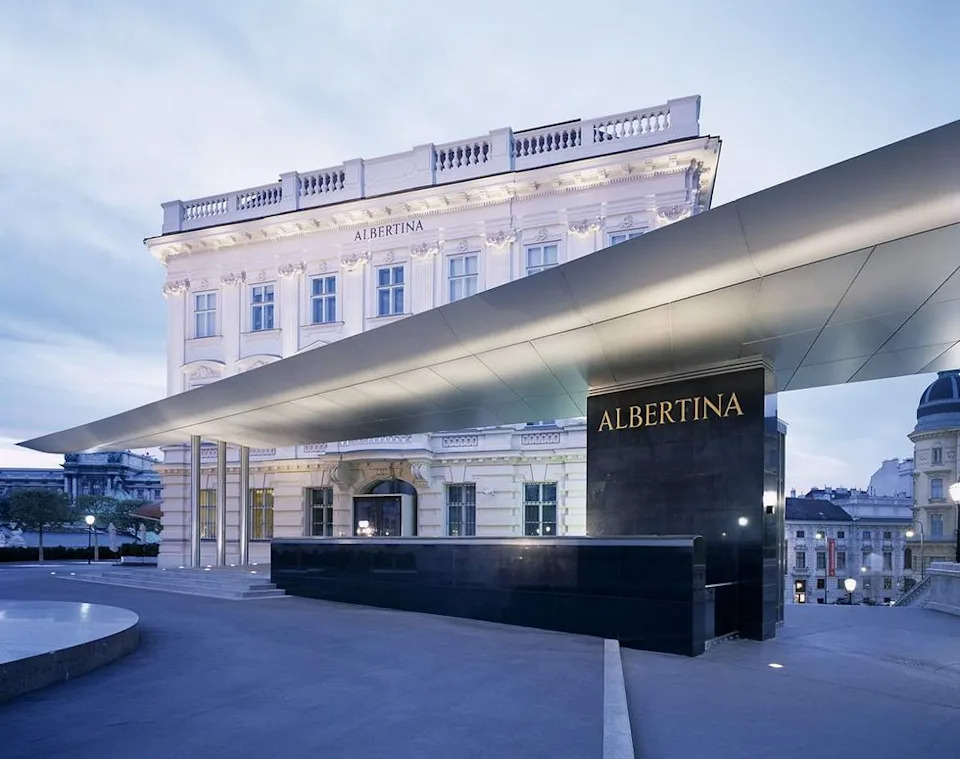
The Albertina Modern museum in Vienna
Courtesy Harald Eisenberger
Albertina Modern, Vienna’s newest museum for contemporary art, opened in 2020.
From major institutions to respected galleries and alternative spaces, Vienna’s art scene seamlessly blends imperial grandeur with modern vision. Albertina Modern, the city’s newest museum for contemporary art, was a personal highlight of my trip. Its permanent collection spans classical to contemporary works, while the rotating exhibitions are thoughtfully curated and consistently fresh.
For Viennese art in a historic setting, the Upper and Lower Belvedere — two baroque palaces built in the 18th century — are essential. Gustav Klimt’s The Kiss glows at the Upper Belvedere. Allow 1.5 to 2 hours to see its highlights, or plan for a half-day to explore both palaces, the gardens, and Belvedere 21, Vienna’s top museum for contemporary art.
The Leopold Museum is another standout, housing Egon Schiele’s masterpieces. For a dose of aristocratic splendor, book a guided tour of Palais Liechtenstein, where baroque halls and paintings by the old masters await.
What to do: Vienna wine tastings
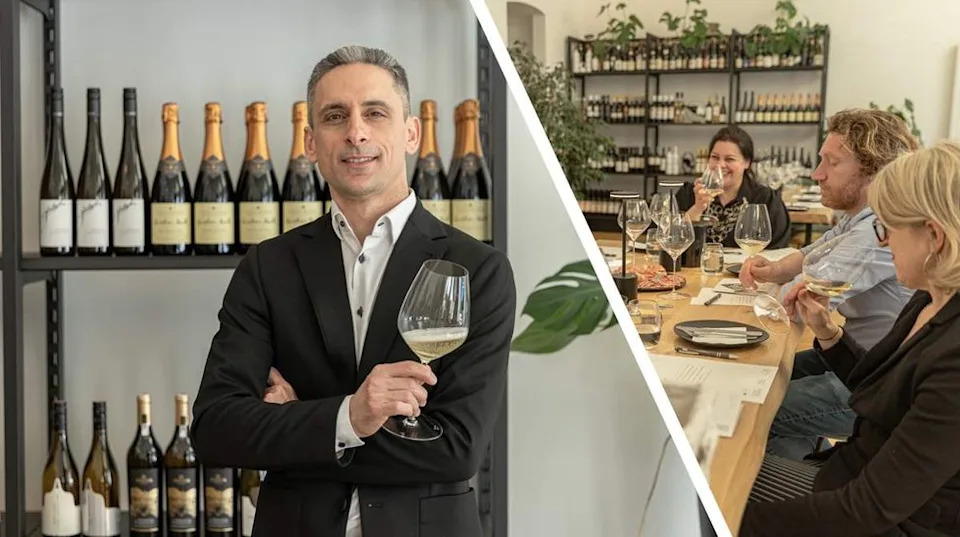
Wine Tasting Vienna founder Stylianos Stavridis and a photo from a tasting event
Courtesy Mahshid Rouzbahani
Wine Tasting Vienna founder Stylianos Stavridis hosts intimate wine tastings that offer the finest Austrian wines.
If you’re curious about Austrian wines and want a relaxed, thoughtful way to learn about them, Wine Tasting Vienna is an excellent detour from the typical tourist track. Just a 15-minute walk from St. Stephen’s Cathedral, this boutique tasting room is bright, modern, and genuinely welcoming. Their two-hour tasting, priced at €120 per person, is led by certified wine professionals who guide you through six exceptional Austrian wines, which are paired with local cheeses or, if requested ahead of time, a vegan alternative.
Although you’ll undoubtedly leave with a deeper understanding of Austrian grapes, the best part of Wine Tasting Vienna is the casual and friendly vibe. No question feels too basic, and the setting makes it easy to meet other travelers. The snacks are spot on, the staff is knowledgeable without being intimidating, and the relaxed setup makes it easy to settle in and enjoy the experience. Whether you’re flying solo or traveling as a pair, visiting the tasting room is a fun and enriching way to experience Vienna’s wine culture firsthand.
What to do: Cultural corners
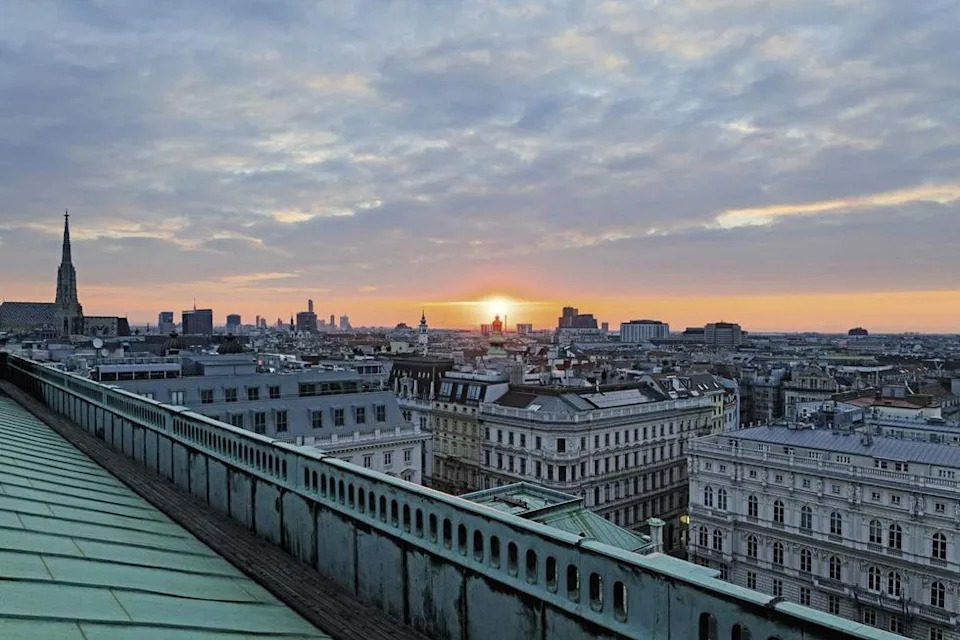
A photograph of the Vienna skyline at sunset
Courtesy WienTourismus/Christian Stemper
Sunset over Vienna with St. Stephen’s Cathedral rising above the city skyline
Vienna may be known for its palaces and precision, but it’s the contradictions that make it most compelling. Case in point: Vienna’s Naschmarkt. Just a short walk from the Almanac Palais, this sprawling farmers market is loud, chaotic, and wonderfully alive. The scent of spices wafts through the air, vendors shout over one another, and falafel is crisped to perfection, making it easy to lose track of time — and meals!
For something more traditional, St. Stephen’s Cathedral is a Gothic masterpiece worth lingering in; however, the real thrill is below, where guided tours of the catacombs reveal macabre tombs and Habsburg secrets. For a night out, consider attending the opera, the ballet, or even a Strauss dinner show. And if you’re in the mood to escape the city’s buzz, head just outside town to a heuriger — a traditional wine tavern, like Wieninger am Nussberg, where you can sip local selections with a view of the Vienna skyline.
Major annual events
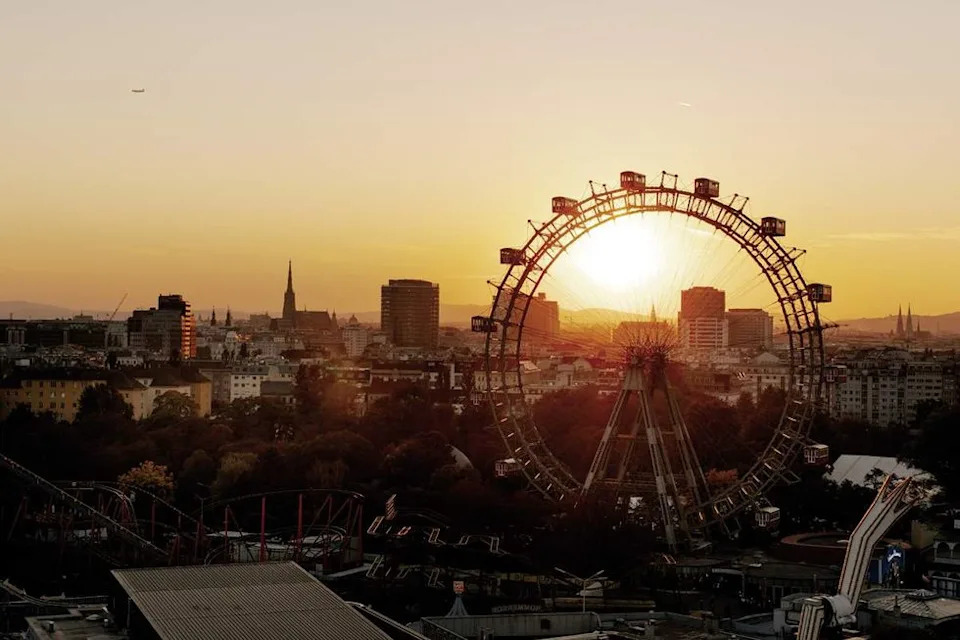
A photograph of Vienna at sunset featuring the giant ferris wheel
Courtesy WienTourismus/Paul Bauer
Vienna boasts year-round events from musical festivals to Pride that attract people from all over the world to see its sights.
Year-round events keep the city’s rhythmic pulse alive long after the curtain falls at its concert halls. From music festivals featuring jazz, classical, and electronic to celebrations of identity, like Pride, the city’s scene is ever-evolving. Annual highlights include:
Vienna Opera Ball (February): This glamorous black-tie affair is held at the State Opera House, which is transformed into a sparkling ballroom for one unforgettable night. It’s a throwback to the city’s imperial past and a favorite of both local high society and curious tourists lucky enough to snag a ticket.
Vienna Festival (May to June): This festival turns the city into a playground for international thespians, musicians, and visual artists. Expect bold performances from some of the world’s most exciting talents, staged in venues ranging from classical concert halls to open-air courtyards.
Vienna Pride (June): Pride brings color and visibility to Vienna’s LGBTQ+ community. Centered around the Rainbow Parade along the historic Ringstrasse, it’s more than a march; it’s a week of parties, talks, performances, and solidarity in one of Europe’s most queer-welcoming capitals.
Donauinselfest (July): Donauinselfest is Europe’s largest free open-air music festival, drawing millions to Danube Island for a long weekend of live acts, food stalls, and summer revelry. Think Eurovision energy, stretched across multiple stages, with something for everyone.
Other important information
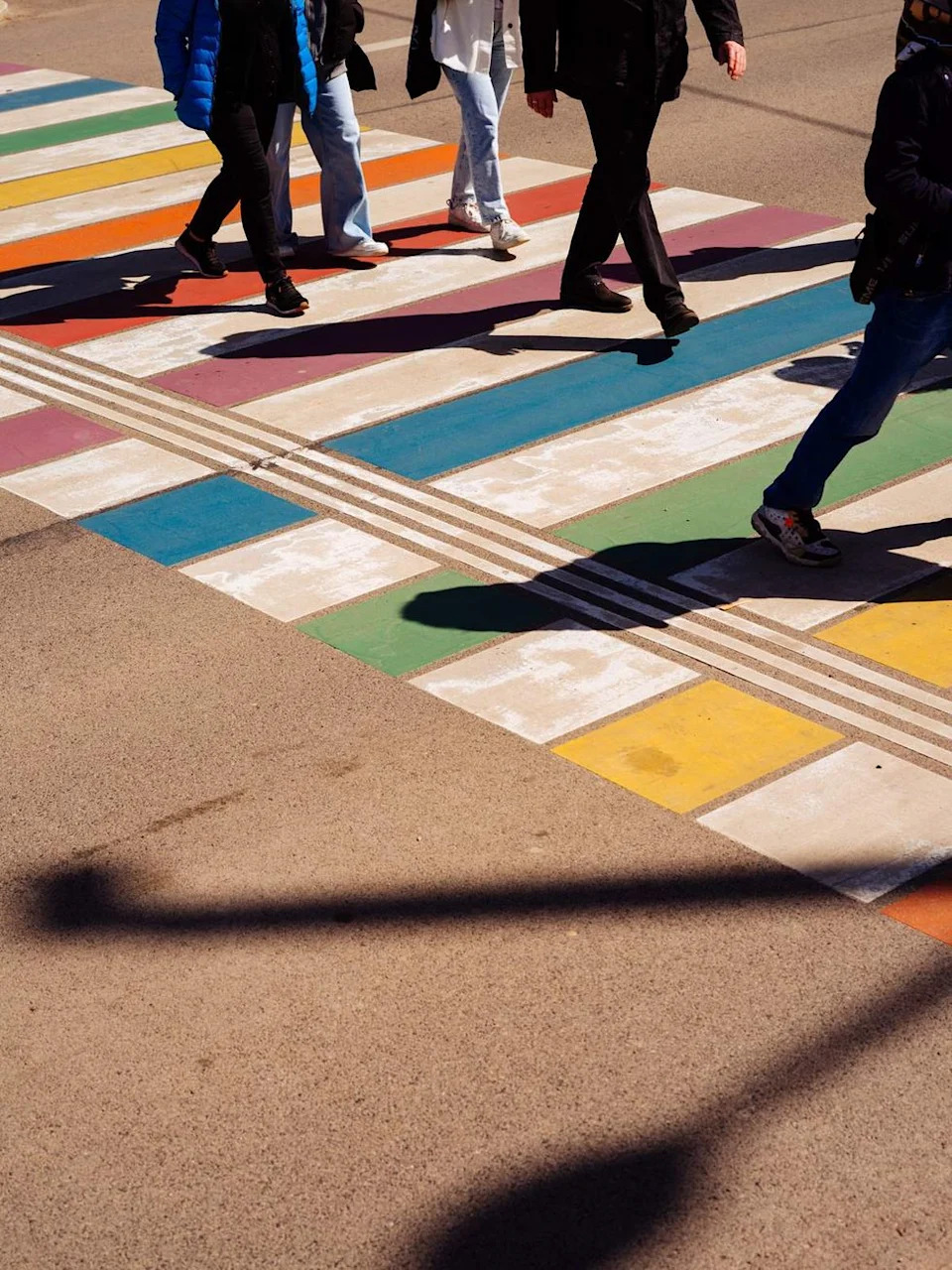
A rainbow crosswalk in Vienna
Courtesy WienTourismus/Julius Hirtzberger.
A rainbow crosswalk reflects Vienna’s everyday embrace of diversity and inclusion.
Language: German is the official language of Austria, and you’ll see “Wien” — “Vienna” in German — used frequently. English is widely spoken, but locals always appreciate a few basic German words, like “bitte” (“please”), “danke” (“thank you”), and “hallo” (“hello”).
Alcohol consumption: The legal drinking age in Austria is 18, though beer and wine can be consumed at 16. Drinking in public is legal and relatively common, especially during warmer months.
Cannabis consumption: Recreational cannabis is illegal in Austria, though possession of small amounts (up to 3 grams) for personal use has been decriminalized.
Tipping culture and currency: Tipping is always appreciated, but much more relaxed than in the U.S. Rounding restaurant bills up or leaving 5 to 10 percent is standard. The national currency is the euro.
Water consumption: Vienna’s tap water comes fresh from the Alps, meaning it’s clean and perfectly safe to drink straight from the tap or any public fountain.
Clothing and weather: Vienna has four distinct seasons. Summers are warm but not overly hot, with temperatures around 77 to 86 degrees Fahrenheit (25 to 30 degrees Celsius). Winters can be chilly, with occasional snow, and average temperatures around 32 degrees Fahrenheit (0 degrees Celsius).
Transportation: Vienna’s public transport system is reliable and clean, and it operates until around 12:30 a.m. during the week. On Fridays, Saturdays, and public holidays, it operates 24/7. The U-Bahn (subway), trams, and buses cover the city pretty well. Uber is also available.
This article originally appeared on Out: Vienna unveiled: Your LGBTQ+ guide to Austria’s cultural capital
